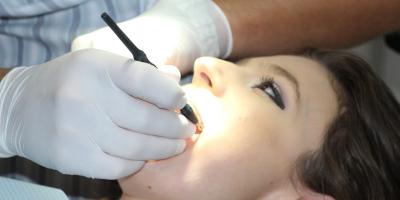Poland is achieving better results in treating lung cancer than the European Union. This has been stated by the newest Eurocare-5 report published by “Lancet Oncology". Unfortunately, we are not as good with other tumours, ranking below the EU average.
Lung cancer is one of the most deadly tumours. In the entire European Union, only 13% of the patients survive five years. In Poland, 14.4% of the patients with this type of neoplasm survive longer than five years.
Poland is not doing as good with other cancerous diseases. In the case of breast cancer, five-year survival rate does not exceed 72%, while the average in the entire European Union is 82%. We are also inferior in treating cancer of the stomach, colon, anus, prostate, melanoma and non-Hodgkin lymphomas.
Inferior results in Eastern Europe
The most recent Eurocare-5 report, which includes the data from the years 2006/2007, states that the entire Eastern Europe is also inferior when compared to the western countries. However, it is stressed that the disproportions between these regions are gradually changing.
One of the examples is breast cancer. In Western Europe, the survival rate of patients with this disease rose during the years 1999-2007 on average from 70% to 75% (72% in Poland). During the same time, it grew from 82 to 85% in Scandinavian countries, which present the best resulting in the treatment of this disease within the entire European Union.
Our region is led by the Czech Republic, where most cancerous diseases present a survival rate at the level of the EU average. The leaders in Western Europe were Austria, Belgium, France, Germany, Switzerland, Netherlands, as well as Italy, Spain, and Portugal.
The average difference in tumour treatment effectiveness between Poland and the western countries is approximately 10%. This is the case for colon cancer – while Poland has a five-year survival rate of 47% of the patients, the EU rate is 57%. The case is similar with anal cancer (adequately 44% and 56%).
Slightly lower differences in the survival rates were recorded for ovarian cancer (34.5% in Poland and 36% in the EU) and kidney cancer (55% and 61%). Meanwhile, we are far behind in the treatment of melanoma (61.5% and 83%), prostate cancer (67% and 83%), and non-Hodgkin lymphomas (44% and 59%).
Less frequent tests equal inferior results
Janusz Meder, the president of the Polish Oncology Union, claims that the inferior treatment results in our country are mainly caused by the fact that, in as many as 70% cases neoplastic diseases are diagnosed at an advanced stage, when treatment is much more difficult. The reason for this is the fact that Poles rarely undergo medical checkups.
We even do not take advantage of the free screening tests, which facilitate the early diagnosis of breast and cervical cancer, as well as large intestine and prostate cancer. For example, only one in four women invited to participate in the screening programme undergo cervical cytology tests, which helps diagnose cervical cancer.
Not all patients are treated in establishments with the highest referral level, which provide comprehensive treatment and diagnostics and are equipped with state-of-the-art devices.
“This is very important, because these establishments show the best effects of therapy," stresses Dr Meder. In his opinion, all patients should be entitled to such treatment.
According to the Polish Oncology Union, associated treatment, which considerably improves results, it applied in approximately one-third of the patients, i.e. only one-half of those recommended for such therapy. This is planned to change through the new National Cancer Prevention Programme.









Comments (0)